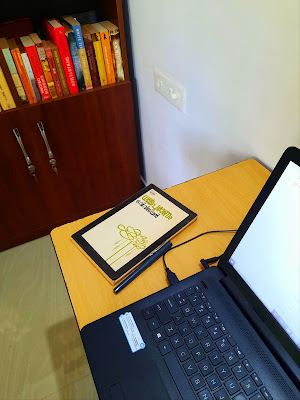A genuine leader liberates his followers. He leads
them to the discovery of their potential, enables them to unfold their
greatness, and thus creates a noble place of noble people.
Bad leaders divide people into belligerent groups in
the name of gods or cultures or languages or anything at all.
Good leaders want a better world. Bad leaders want
political power.
Good leaders live in the present. Bad leaders live in
history.
Without history, where will the nationalist and the
patriot set their feet? Without history, where will the soldier stand for shooting
at and for being shot at? It is history that creates politics which in turn
creates power, says the Minister of Sorrows in O V Vijayan’s apocalyptic novel,
The Saga of Dharmapuri, originally published in Malayalam in 1977.
The Minister is lecturing about the importance of history to Lavanya, a maidservant,
whom he is disrobing while his own wife is being disrobed by the President.
“Without power, can I disrobe you whenever I want you?”
Minister of Sorrows asks Lavanya.
“Without power, can you pimp your own wife to the
President?” Lavanya asks the Minister knowing that he won’t arrest her for
treason in the present condition. Lavanya knows that such pimping is essential
in order to ascend the rungs of power in Dharmapuri. That is, in addition to
eating the President’s shit, and praising the shit in speeches and songs and the
media.
Power doesn’t come easily.
When the Minister leaves her having reached his
lifeless ejaculation, Lavanya is disrobed by a soldier. Her resistance elicits
a threat from the nationalist soldier, “Not cooperating with the nationalist is
treason. Death is the punishment.” Lavanya asks her little son to look the
other way while she performs her nationalist duty for the sake of her great
country whose history goes back by millennia.
Nationalism doesn’t stop with the soldiers. There are
various organisations to uphold nationalism at all levels and places. There is
a Sena of teenagers that demand women who are old enough to be their mothers to
disrobe themselves for the performance of nationalist services.
Walk on the highway of nationalism further and we come
across the labourers who are carrying corpses of traitors to be exported to
neighbouring countries for various purposes such as medical research. There is
this corpse of a young girl, a student of Nalanda University, who still looks
beautiful even after death, being carried on a pushcart and the cart-puller
stops on the way to disrobe the corpse so that he can enjoy such a beautiful
body which he will never be able to embrace otherwise. He is a nationalist too.
Because he is disposing off the bodies of the enemies of the nation, traitors who
questioned the President.
Like the proverbial silver line in the dark cloud is
Siddhartha who brings a healing touch to the people of Dharmapuri. He knows the
futility of history and its brutal wars. He knows that nationalism belongs to mobs
and that mobs carry the cudgels of history.
Siddhartha also knows that god’s creation has too many
flaws. He, an ordinary human being but one without the chains and straitjackets
of nationalism and other isms, is willing to take upon himself the flaws of god’s
creation. He is ready to do penance on behalf of god.
And he knows that he is destined to be a failure.
PS. What
prompted me to write this post is this week’s Indispire theme: 'A stir, panic/outrage, a complacent numbness...repeat'
is the order of the day, nowadays, whatever be the issue...are these times of
volatile emotions? #VolatileEmotions
The above post is my response to the theme. I know I’m destined to be a
failure with this sort of writing. But I prefer that failure to the scatology
of nationalism. I embrace Siddhartha at any time, anywhere – Siddhartha who has
no national borders, Siddhartha who seeks to heal the wounds inflicted by gods.

Comments
Post a Comment